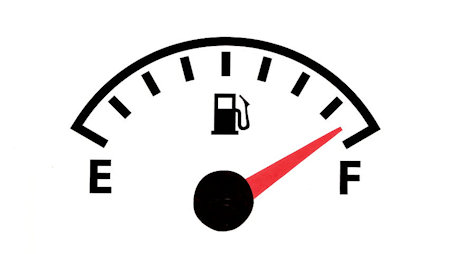


Mobile users:
For best results, view in Landscape mode.

With the cost of fuel these
days,
you can get the best mileage
possible from your car by keeping
it in top shape and using some easy
energy saving ideas.
Consider these Tips:
Regular Tune Ups:Probably the biggest waste of gas is an improperly
tuned engine.
A rough running engine uses more gas quicker than
a properly tuned engine.
Tire pressure:
Under inflation or over inflation of tires can lead to decreased
fuel mileage and improper wear, shortening the life of your
tires.
Check your owner's manual for the recommended tire pressure
and check your tires regularly with a tire pressure gauge.
Air filters:
Dirty air filters can also cause your engine to run at less than
peak efficiency.
Regular visual checks of the air filter will tell you if it needs
replacing and your owner's manual will also recommend
appropriate replacement intervals.
Oil:
Using the correct viscosity oil is important because higher
viscosity oils have greater resistance to the moving
parts of the engine, and therefore use more gas.
Unnecessary air conditioner use:
Driving with the A/C on puts a big drain on your gas mileage.
Keep it off until the summer heat sets in and you'll save.
Driving habits:
Quick starts from a stoplight or stop sign use more fuel than
smooth, steady acceleration.
Studies have shown that accelerating moderately and stopping
gradually may cut gas consumption by as much as 35%.
If you have errands to run, think ahead and plan your route
to avoid backtracking or getting stuck in traffic jams.
Sometimes a somewhat longer route that lets
you maintain a steady speed can be more fuel efficient than
a shorter route that has a lot of traffic lights.
Aggressive driving in city
traffic saves very little time but
greatly increases fuel consumption.
It is also hard on the engine and brakes.
The safer, more fuel-efficient option is to accelerate
smoothly and maintain a steady speed.
Accelerate smoothly when passing other cars or when
merging with faster traffic.
Also, avoid hard braking by leaving plenty of room
between your car and the one in front of you.
Extended idling time:
Unnecessary idling of the engine will cause excessive fuel
use.
If you're going to be sitting in the car for a while, shut it off.
Don’t forget to check your fuel cap.
Make sure it’s undamaged and secure.
Missing or problematic caps are
responsible for 147 million gallons
of gas vaporizing annually.
For Info on
Fuel Octane Rating,

